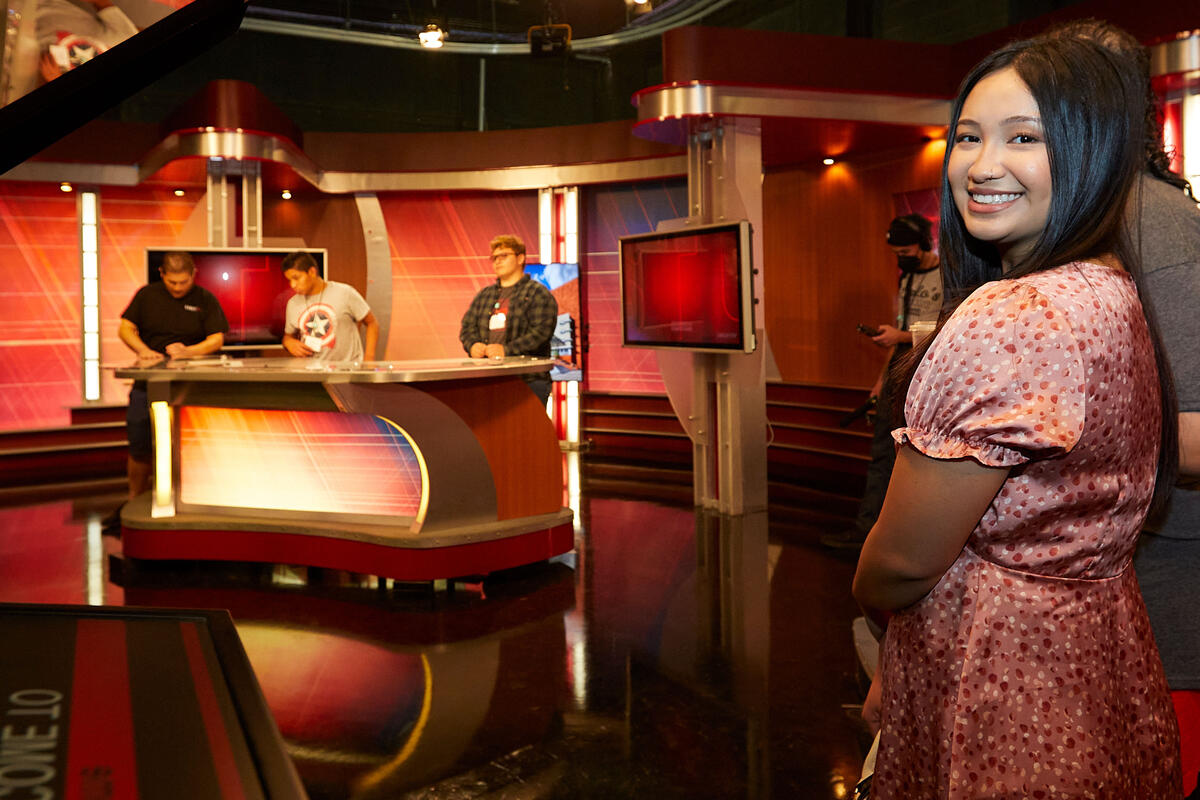Being a social worker is about helping people to solve their problems.
UNLV senior and social work major Sarah Mae Agbilay didn’t need to wait for her diploma to start helping. Agbilay, 20, has been cultivating community and bridging resource gaps in Southern Nevada since she moved to the area as a high schooler from a small Hawaiian town.
Her social work degree requires practicum experience, and last fall Agbilay served hers with the early outreach program in UNLV Admissions. She jumped into conducting research on Native American youth and post-secondary education in Nevada — work the office was immediately able to apply to improving its programming.
What first sparked your interest in social work?
My main interest in social work started in high school when I first moved here because I was feeling a bit lonely. I was like, “This is very different than where I grew up.” I didn’t really know too many people, and I found myself just being bored when I got home. Because it’s not really as common here for people to go outside and hang out with friends; it’s just too hot here!
So I started getting involved with community service in high school. All throughout high school I worked with the Southern Nevada Health District and Planned Parenthood as a peer educator, and I was connecting teenagers in North Las Vegas to family planning resources as well as sexual health education.
And what about those experiences pushed you toward social work as a career?
There are just so many resources in Las Vegas for different people experiencing challenges, and because of that [local] disconnectedness, people don’t know about these resources. People don’t know how to get these resources. Realizing those challenges is what drew me to social work as being that link between people experiencing challenges and then those resources that are put in place to help them, as well as advocating for additional resources when we realize access isn’t necessarily the issue.
In fall you completed a practicum with UNLV Early Outreach, where your work included researching Native Americans and their relationship with higher education. How did that project come about?
When I started my practicum there, there were two main populations that Early Outreach was going to begin working with that they wanted some more information on. Those populations were Native Americans as well as individuals in the foster care system.
I decided to take on the Native American population because it was just a population I felt I knew so little about, and I felt some internalized guilt not knowing much about them, especially being that we live on Nuwu land. I don’t know anything about them, anything about their culture, about their history, about how to serve that population. That just really didn’t sit well with me. I decided to take on that population, and then I began conducting interviews with community individuals just so I could have a place to start with my research.
What did you learn about the relationship between Native Americans and higher ed by engaging with these communities?
There’s just a lot of misconceptions about college, what type of lifestyle you live in college, about financial aid and being able to afford college, and that lack of awareness really hit home with Early Outreach.
We noticed that in our communities in Las Vegas already, but then for these Native American individuals, it’s like one more step removed. They know even less, and [Early Outreach wanted to be] able to really provide opportunities for Native American students to get on campus and learn not just about college but also about what other options are there for them. We want them to be able to know the realities of college and make an informed decision for themselves, and I think that was one of the main problems. You can’t make an informed decision if no one is trying to provide you with that information. That lack of awareness piece was a big one.
Were there any other big takeaways?
I learned that there can be some feelings of loneliness for Native American individuals in not knowing who they can trust because in Native American culture they’re more likely to be distrusting of authority figures due to histories of oppression. So being able to provide them with an opportunity to make connections and be able to interact socially was very important. … Another thing that they were lacking was the opportunity to learn about different types of fields in person because there’s not as much emphasis on different types of degrees that they can get and different types of majors they can get involved in.
Did you apply any lessons from your coursework to your research?
One of the big things in social work is that cultural competency piece and understanding how different cultures will interact differently, as well as understanding how to not overgeneralize those things that you learn.
The lessons of your research are being applied to the design of the Native Youth College Camp at UNLV. How do you feel about that?
Conducting research can seem a bit removed, and at times, even when I was conducting my research, I’m human, I get to those points where I was feeling slumped down. Once I was able to see the [camp] agenda and see that they put this and that in there because of some of the research and the discussions that I was able to have, it really makes me feel like all of the work I did really had a reason. It kind of ignited a fire in me to continue doing [such work] throughout my social work career.
What was your personal takeaway from the research?
With any individual going into a helping profession, it’s really their responsibility to ensure that they are doing research and educating themselves and continuing their education to ensure that they’re able to help all of the clients that walk through their door adequately.



